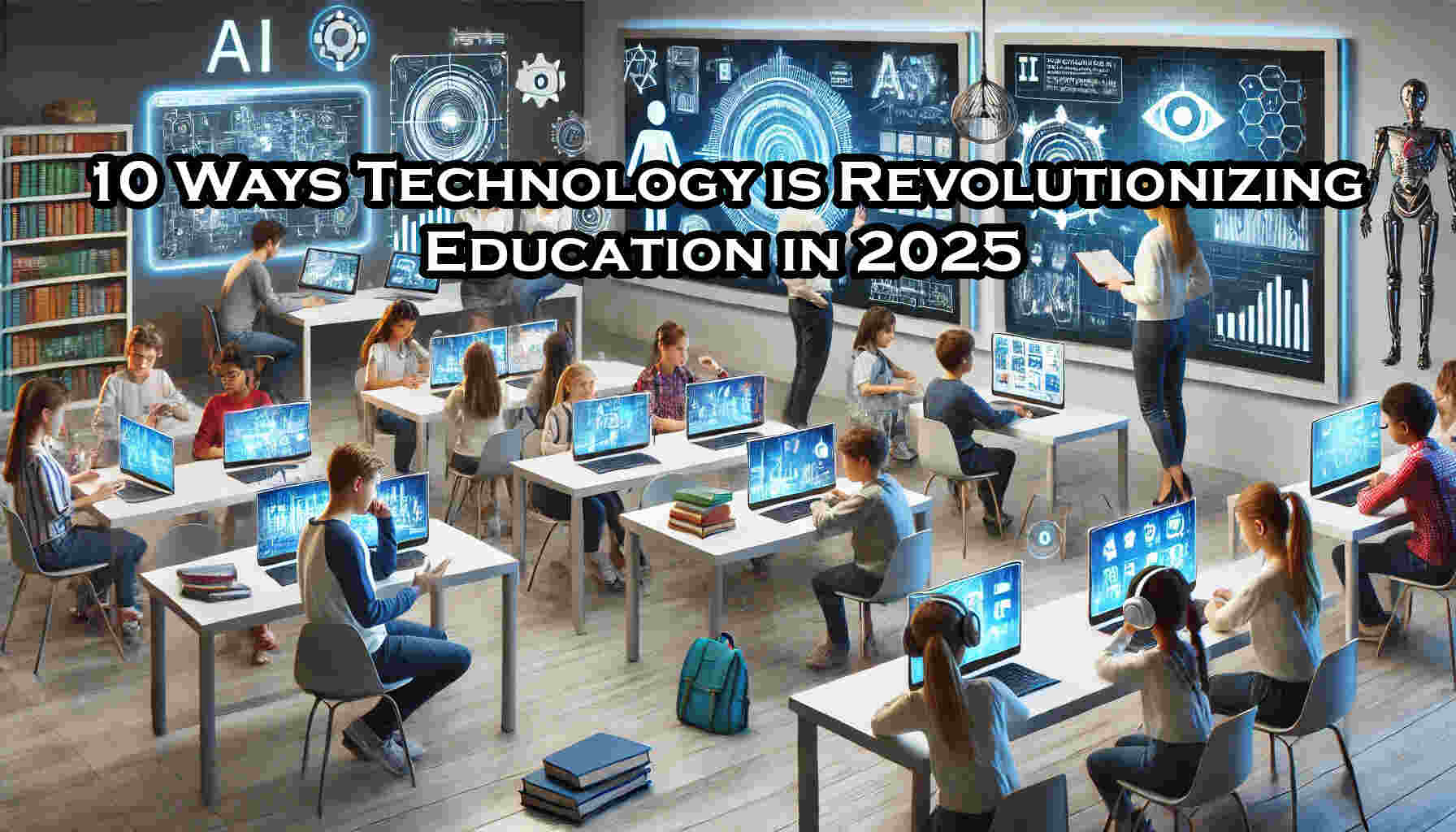It is not just supporting education by the year 2025, in fact it has completely changed it. From bespoke learning experiences to more intelligent classrooms the way we teach and learn is being redefined in major new ways. Below ten change-making innovations transforming education to be more effective, inclusive, engagement-oriented.
1. Personalized Learning Through AI
🤖AI is allowing us to personalize education. By understanding how people learn AI-powered platforms change lessons in real time, offer focused practice, offer immediate feedback. This bespoke method means students can learn at their own pace – so every learner succeeds.
2. Immersive Learning with VR and AR
🤖Virtual and Augmented Reality comes and makes the lessons an experience. Whether exploring ancient ruins, dissecting anatomy in 3D models, or recreating science labs, students are interacting with content in provocative, thought-provoking new ways — driving both curiosity and staying power.
3. Secure Credentials with Blockchain
🤖Blockchain is bringing security and integrity to that study papers. Students can keep diplomas and certificates digitally keeping safe and un-tamper able and easy verifiable. It makes everything from job applications to university applications a whole lot simpler.
4. Gamification Sparks Motivation
🤖No longer are games just about games… games are driving education! Learning platforms that incorporate points, challenges, and leader boards make learning fun, as well as a game. The long story of dull subjects is becoming more vivid, more stimulating.
5. Smart Classrooms Powered by IoT
🤖IoT is revolutionizing the way classrooms learn and interact. With connected devices such as smartboards and sensors, teachers can monitor participation, adjust environmental conditions and streamline routine tasks so that the environment fosters more effective learning outcomes.
6. On-Demand Help from AI Tutors
🤖AI educators and chatbots deliver students round the clock academic assistance. They will be able to respond to questions, explain complex topics, be your always-on digital teaching assistant to help facilitate the research and enrich the classroom learning.
7. Blending Online and In-Person Learning
🤖Remote learning technology has evolved into a mature toolset that supports hybrid learning deliveryusiness models. Video calls, instant real time co collaboration and AI powering inside assessment tools making learning more student centric and scalable to appear anywhere.
8. Greater Accessibility with Assistive Tech
🤖Tech is getting rid of barriers for students who have disabilities. Software like speech-to-text, screen readers and adaptive platforms are allowing all students a fair shot at achieving, making inclusion.implausible in each one of educational atmospheres.
9. Human Resource Performance Boosted By Big Data
🤖Schools are employing data analytics to get a better sense of students’ learning. Examining performance trends, teachers can discover difficulties in advance and overly personize teaching to satisfy necessary deferred decisions, hail upon expected assorted kinds of results and additional efficient proceeding reception strategies.
10. Innovation from EdTech Startups
🤖The education sector is witnessing in today a sea of innovation thanks to EdTech developments. From AI-backed teaching aids to new mobile learning platforms, these startups are continuously releasing new innovations that assist educators to teach more effectively, and students, to learn more effectively.
Final Word
The technology role in education is no longer just about convenience – it’s about revolution. With solutions that individualize learning, encourage engagement, and support equity, tech is creating the foundation for a more intelligent, more connected education. As these trends grow and evolve, they’re also giving teachers and students new room to soar.
